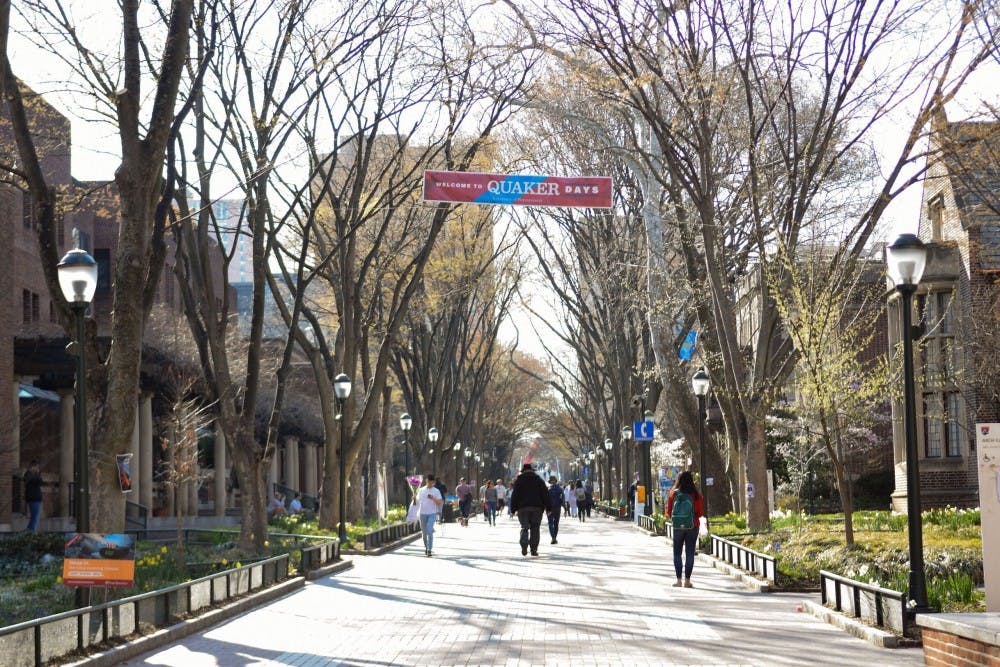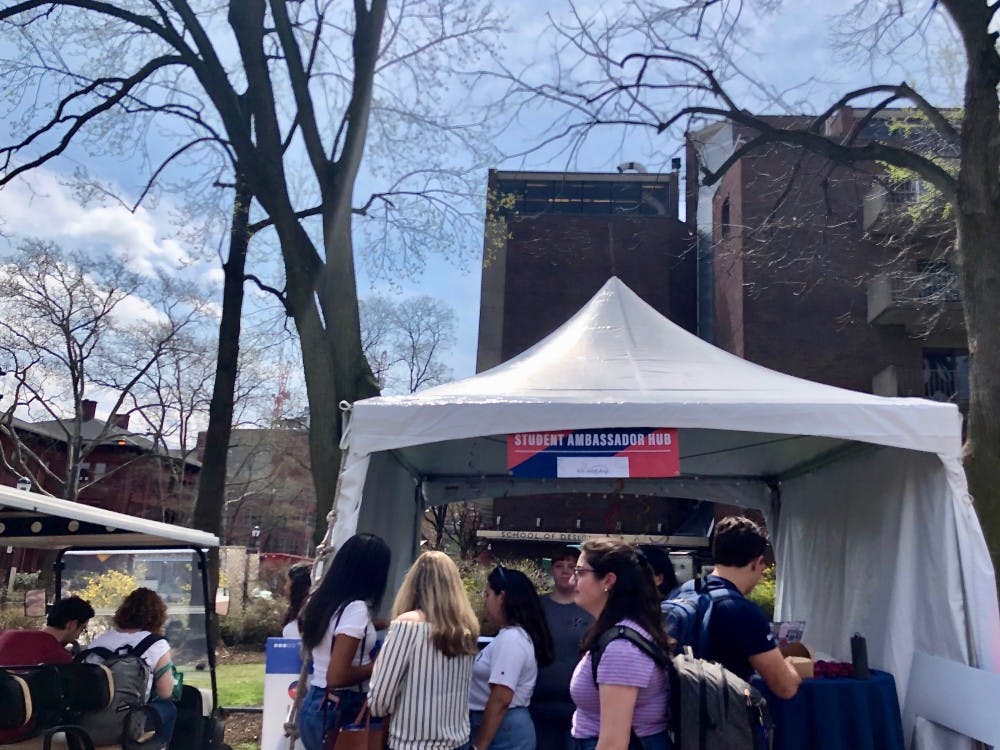
Hundreds of baby Quakers are running around campus today to visit Penn for the first time since they were admitted to the Class of 2023 last month.
Every year in April, between 400 and 600 admitted students have the chance to experience Penn at Quaker Days, which used to span two days. This year, however, Penn implemented several changes to the traditional event, which will now span three days. Although Penn previously hosted ConnectED — the early decision student preview day — the University decided to combine the two events this year. Students admitted early decision will now join regular decision students on Quaker Days, which runs on April 8, 10, and 17.
In past years, ConnectED and Quaker Days attendees also had the opportunity to stay in student dorms and participate in an overnight component to the programming. This year, that opportunity has been limited only to students in the Multicultural Scholars program, who will be able to spend the night on campus on April 16.
Dean of Admissions Eric Furda said the University has struggled to house regular decision students in past years for the overnight component. And now that early decision students are also attending Quaker Days, Penn does not have the capacity to house all admitted students.
“We will still have an overnight component, but we’re being very focused about that overnight component, so it’s not an open invitation to all admitted students” Furda said. “Due to the smaller number of students involved in this program, it was possible for us to continue to deliver a high-quality, overnight experience for this event.”
Furda said the ability to host both regular and early decision students simultaneously was a driving factor for the changes.

Now, Quaker days will shift to a three-day format to accommodate the inclusion of both early decision and regular decision students.
“I think the motivation for ED students always has been that they’re enthusiastic and that they can represent the place,” Furda said. “They are next to the students who are still making up their mind. So it’s them helping to influence the regular decision admits because they’re enthusiastic.”
The inclusion of both early decision and regular decision students will lead to overhauled programming – shifting the events to a three-day format and having separate programming for each round of admitted students.
Furda said early decision students are at a different stage in their college admissions process than regular decision students. One group is committed to Penn, while the other has not yet accepted their offers.
“[ED students'] programming needs are more in line with new student orientation than ‘what do need to see to decide whether I’m coming or not,’” Furda said. “And so, there is something that you gain while also there’s a differentiation of the needs of the audience.”
Kite and Key tents usually have existed to help with logistics, but they are now more focused on serving as interactive student hubs to make "current Penn students more accessible for the admits."
Kite and Key student tour guides usually run informational tents and special hour-long tours for admitted students and their families for Quaker Days. Kite and Key president and College sophomore Julia Klayman said the tents they manage usually have existed to help with logistics, but they are now more focused on serving as interactive student hubs to make "current Penn students more accessible for the admits."
Over the course of Quaker Days, students and families will be offered “structured choice” across programming. Furda said they hope this choice will allow ED and RD students to choose the programs that interest them most.
The Daily Pennsylvanian is an independent, student-run newspaper. Please consider making a donation to support the coverage that shapes the University. Your generosity ensures a future of strong journalism at Penn.
Donate




